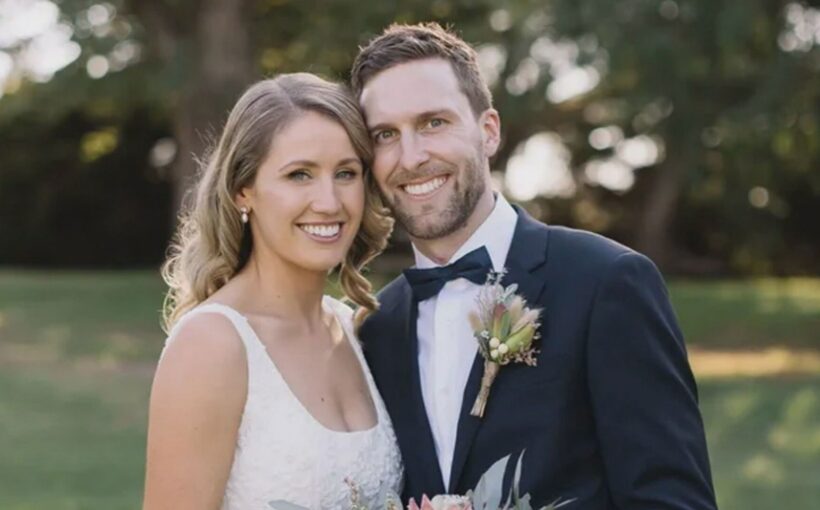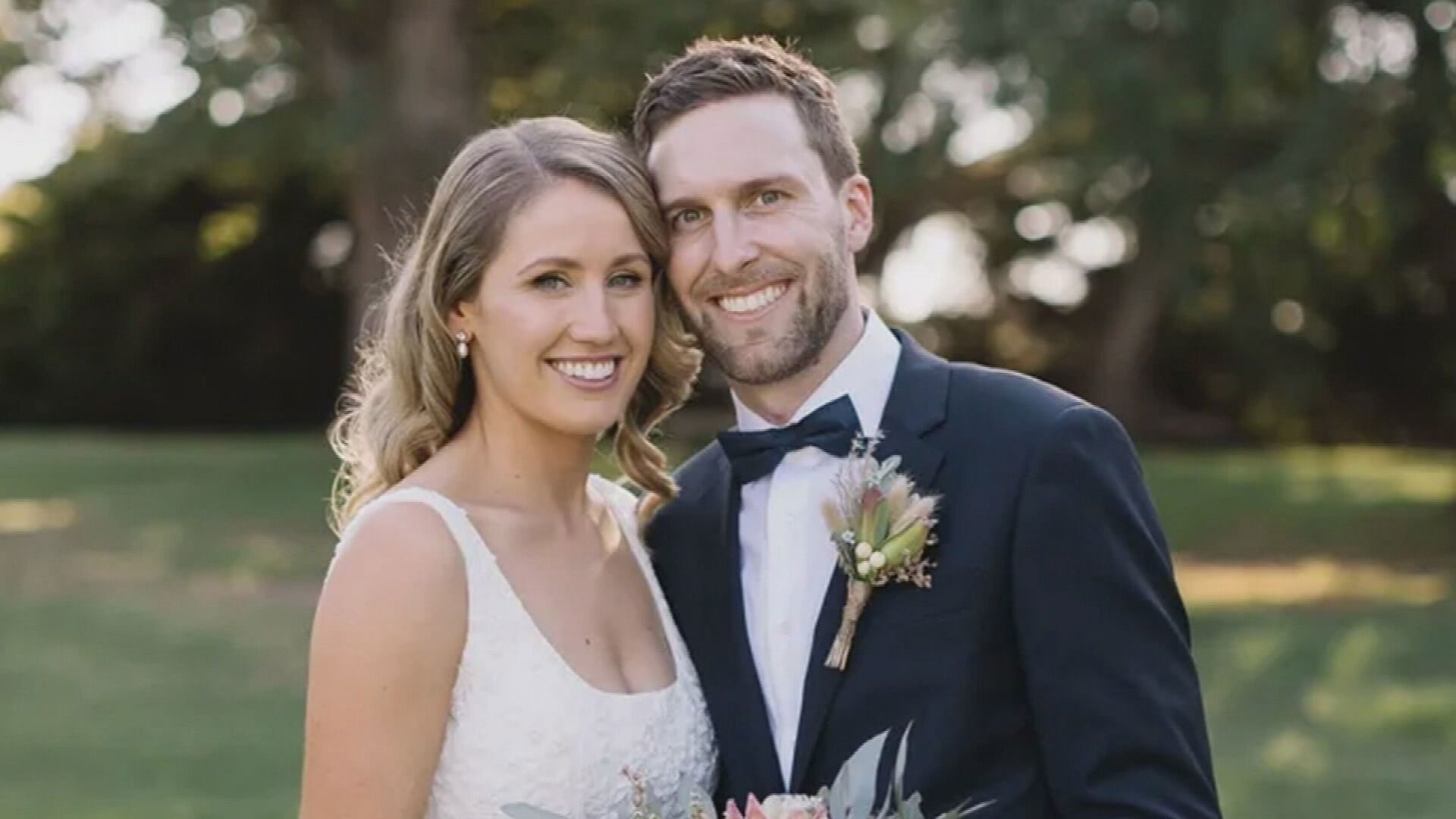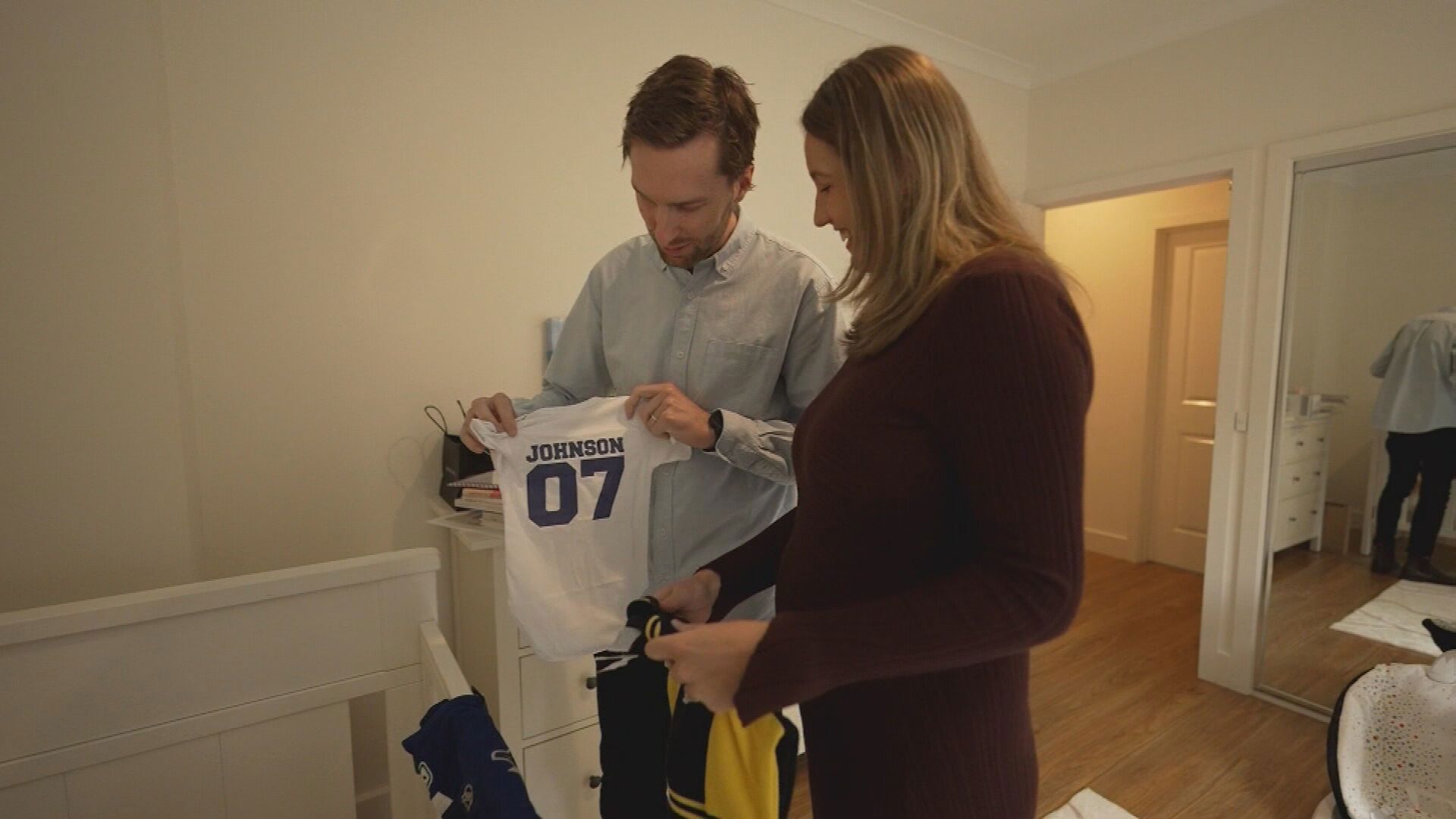A Melbourne father-to-be who’s fighting incurable bowel cancer is pushing to raise awareness about the disease.
Luke Johnson is warning young Australians to be on the lookout for symptoms as oncologists label its early onset an “epidemic”.
It’s been a two-year journey since he and his wife, Tegan, were given the worst possible news.
At just 32 years old, his stomach cramps were initially misdiagnosed as appendicitis, then found to be bowel cancer that had spread.
“I had stage four bowel cancer pretty much from out of the blue and no symptoms other than some mild stomach pains,” he told 9News.
“It wasn’t really on our radar that cancer could possibly be a diagnosis at that point. We thought everything would be treatable.”
Luke underwent intense chemotherapy and major surgery.
But in February, he was told his cancer was no longer curable.
“There’s a very short-term prognosis,” he said.
Tegan has been by his side the whole way.
“He brings me up a lot more than I probably bring him up – I honestly don’t know how he does it,” Tegan said.
Their positivity is spurred on by them expecting their first child in June.
“Luke’s going to be the most incredible father. He’s so amazing with all our nieces and nephews so I just can’t wait for that next chapter together,” Tegan said.
Bowel cancer is often considered an old person’s disease, but over the past two decades the rate of cancer in people under the age of 40 has doubled.
Oncologists are describing it as an epidemic that’s picked up too late.
Dr James McCracken said younger people were “often presenting with more advanced disease than their older cohorts”.
“They’re often fit, very well people.”
If caught early, 99 per cent of bowel cancers can be successfully treated.
Doctors want younger people to seek a colonoscopy if something doesn’t feel right.
Currently, people aged 50 to 74 are sent a bowel screening test in the mail every two years.
Bowel Cancer Australia has been calling on the federal government to lower that screening age to 45.
“More importantly, people at age 40 at average risk can actually request a test kit from their GP,” Bowel Cancer Australia chief executive Julien Wiggins said.
“If you don’t get the answer you’re after seek a second opinion.”
Bowel cancer symptoms can include:
- diarrhoea or constipation
- blood in the stool
- abdominal pain
- bloating
- cramping
- weight loss
- unexplained fatigue.





